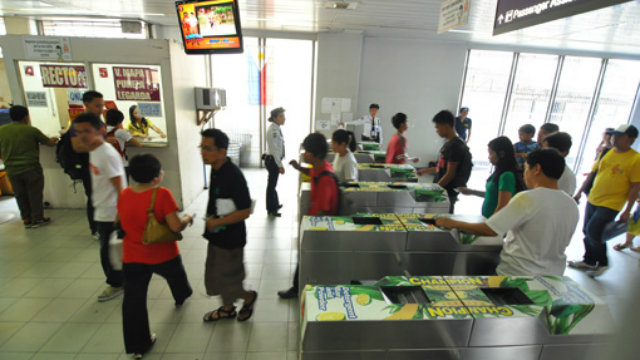SUMMARY
This is AI generated summarization, which may have errors. For context, always refer to the full article.

MANILA, Philippines – The trains that will be used for the upcoming Light Rail Transit line 1 (LRT-1) Cavite extension project will have Japan funding.
The Philippine and Japan governments are set to ink a P30-billion loan agreement in March for the purchase of up to 39 new Light Rail Vehicles (LRVs), according to Transportation Undersecretary Jose Perpetou Lotilla.
“We expect to sign the loan denominated in Japanese yen worth roughly about P30 billion on March 15,” Lotilla said on the sidelines of the February 21 pre-bid conference for the project.
He added that the terms of the concessional loan, which is under the Official Development Assistance (ODA) scheme, are still being finalized. It would include a provision requiring Japanese companies to be involved in the deal, the official said.
The Philippine government and the winning bidder from the private sector will equally split the P60.6-billion project cost.
Private and public funds
The Cavite extension project, the biggest infrastructure project under the Aquino administration’s public-private partnership (PPP) scheme, will extend the LRT-1 line from its current 20.7 kilometers to 32.4 kilometers ending in Bacoor in Cavite instead of Baclaran.
Once completed, the new line will increase ridership of LRT1 from 500,000 to 700,000 passengers per day and provide faster and more convenient alternative to residents of Cavite, Las Pinas and Paranaque.
Lotilla said the DOTC has decided to pursue the construction of 10 stations instead of the earlier designated 8 stations.
New stations will include Redemptorist church in Baclaran, MIA Road, Asiaworld, N. Aquino, Dr. Santos, Manuyo Uno, Las Pinas, Zapote, Talaba, and finally Niog.
The government’s obligation include the turn-over of its possession of the existing Line 1 assets for rail operation and maintenance, acquisition and delivery of right of way, implement the automated fare collection system (AFCS) project, and ensure the application of periodic fare adjustments.
Four of the country’s biggest business groups are among the final bidders. These include the consortium of tandem between Metro Pacific Investments Corp. (MPIC) and Ayala groups, San Miguel Corp, DMCI Holdings and MTDC-Samsung Consortium. – Rappler.com
Add a comment
How does this make you feel?
There are no comments yet. Add your comment to start the conversation.